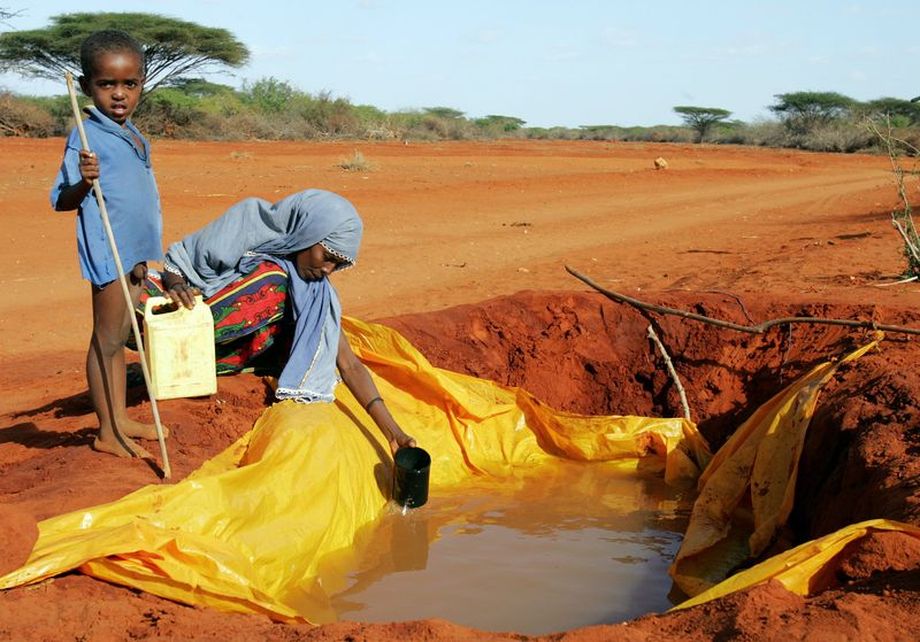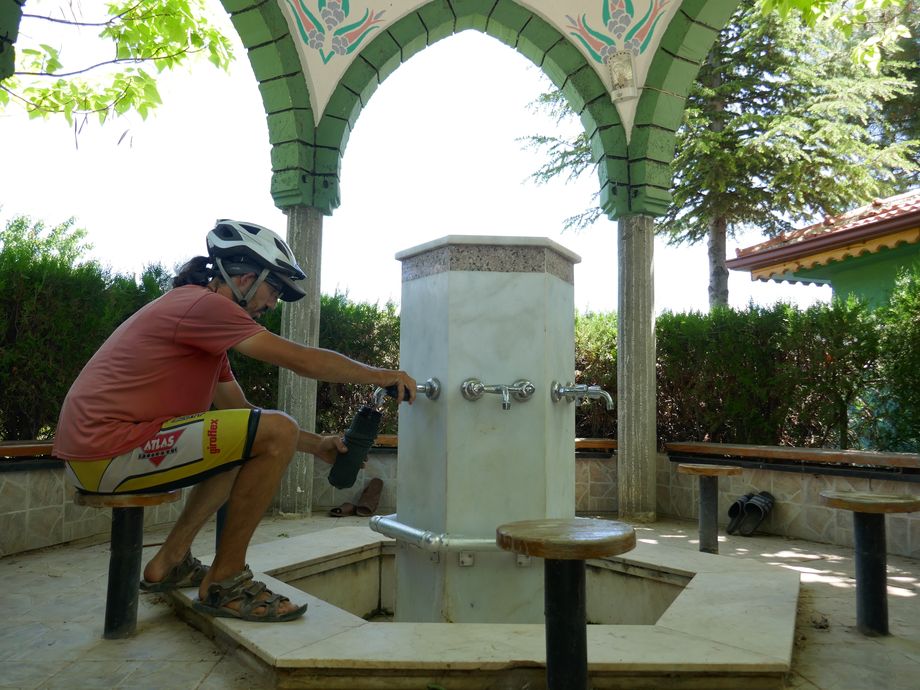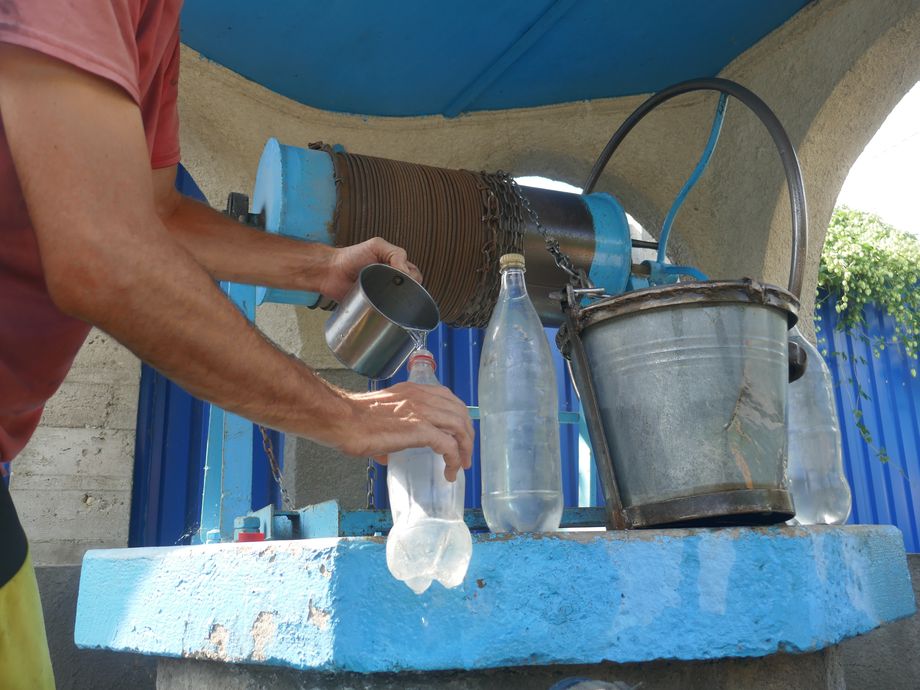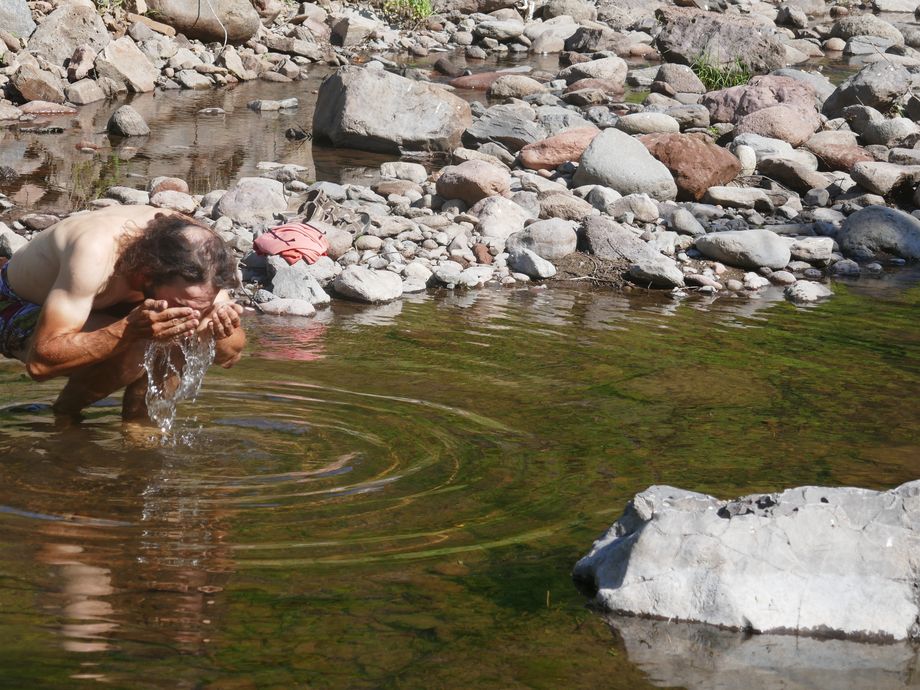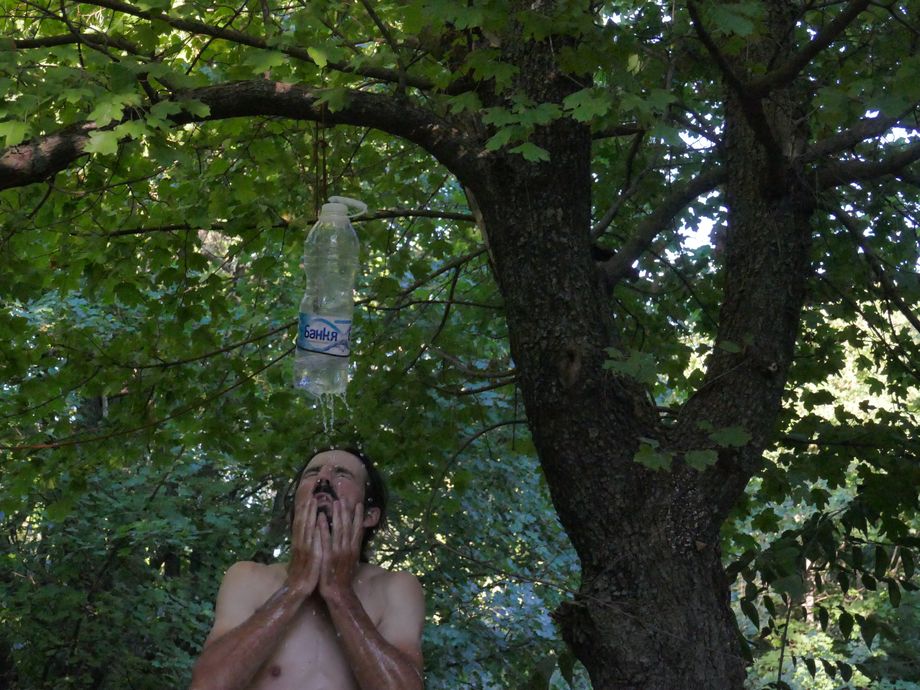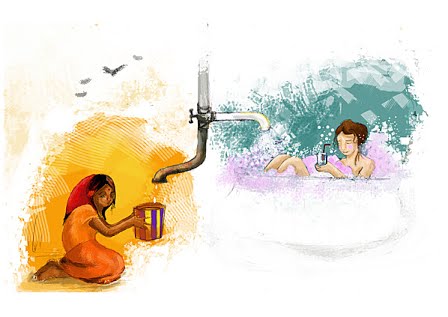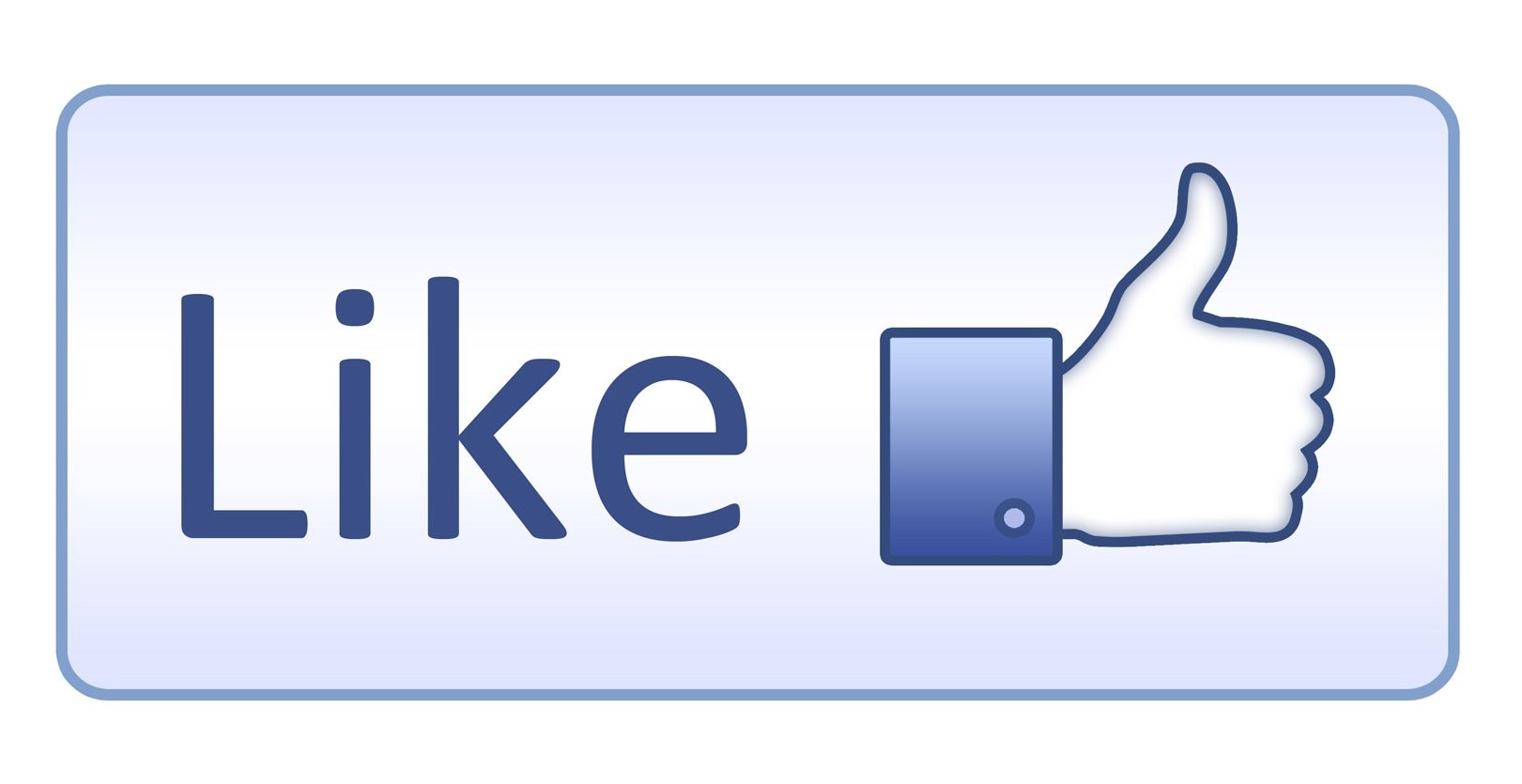One day I was cycling through Bulgaria, where finding water is easy as there are many springs along the road. I was confident about this, and started cycling up a mountain pass with no water, despite the heat. The climb was longer then I had anticipated, and I was starting to get seriously thirsty. I was surrounded by luscious green forests and had magnificent views at every bend in the road. It was so peaceful, not a village in sight, a camper’s paradise. I was tired and wanted to stop. Ironically I had not seen a single water point in tens of kilometers that day. Without a drop of water with me, I couldn’t afford to stop until I had found some. I was forced to push myself further until I eventually found a well hidden spring, next to which I could put the tent up. I was desperately thirsty, so feeling the cool water running down my throat and into my stomach filled me with a feeling of well being. I had never been so happy to drink.
When you just need to turn on the tap to get safe drinking water, your daily concerns are far from those of the 3 to 4 billion people in the world who only have access to dubious quality drinking water. Despite 2 billion extra people gaining access to safe water at the turn of the 21st century (well or drinking water terminal), the distances that those people sometimes need to travel to get to them can still be considerable. Women and children who are usually in charge of gathering water spend a colossal amount of time doing these chores. This keeps kids from going to school and women from caring for children or doing other work. Poor access to water is a real obstacle to development.
Carrying a large amount of water on a bike is difficult. Drinking and cooking are priorities, but water is also needed for washing oneself and clothes. When water reserves are low, having good hygiene can be complicated. Knowing the great value of water and how fragile it is, I have learnt not to pollute it with chemicals or feces. In many countries through lack of rubbish or sewage collection, the pollution of water causes serious diseases.
Then there is the problem of availability. Mother Nature got this wrong. Although global water resources are sufficient, they are very unequally distributed. Nine countries control 60% of the world’s soft water resources. From one country to another, the amount of water available is very unequal. For instance inhabitants of Palestine must live with 10.000 times less water than those of Iceland, where water reserves are astronomical. Water, also known as “blue gold” could, like petrol, be the cause of international tensions and lead to war. Water shortages are to be expected in the future.
The global population has increased, and is set to grow more in the centuries to come. This growing population is going to have to share a finite, and possibly decreasing quantity of drinking water. Without accounting for global warming which is set to make things worse, the resources are already overexploited, wasted and polluted.
To quote the french public research body CNRS (Centre National de la Recherche Scientifique)
“Though it is possible to draw water indefinitely from the annual reserve of a water course, exploiting the ground water tables is more delicate. Some of those are no longer renewed, but are still being exploited in excess. it seems invevitable that they will disappear. Irrigation is the main cause, but household wastage is also a threat, and potentially a major one. It increases with the living standards of the population. In Europe we already consume eight times more water than our grandparents for our daily use. Similarly a resident of Sydney consumes more than 1000 litres of drinking water per day, whereas in some developping countries the daily consumption per inhabitant is barely a few litres. Furethermore, barely 55% of water collected in the environment is actually consumed. In some larges cities in Asia or Africa, up to 70% of distributed water is wasted through leakages in the network. This global increase in consumption impacts on the water quality as it increases the volume of used water to treat. This waste water pollutes and degrades the aquatic ecosystems condiderably. This serious pollution could eventually render the water ressources inexploitable.”
source: 2017, french public research body, CNRS (Centre National de la Recherche Scientifique).
The more water is rare, the more speculation on it appears, making it even more inaccessible for poor populations who are already in a state of “water stress”. Should it be privatised or considered a “common good” ? Politicians have not yet decided between profit and the Humanity greater good. Access to water is already difficult in many part of the world, and the situation can only get worse in the decades to come. Sadly, it seems that it may become an unsolvable issue.
Join fast Facebook community to discuss with us !!!

